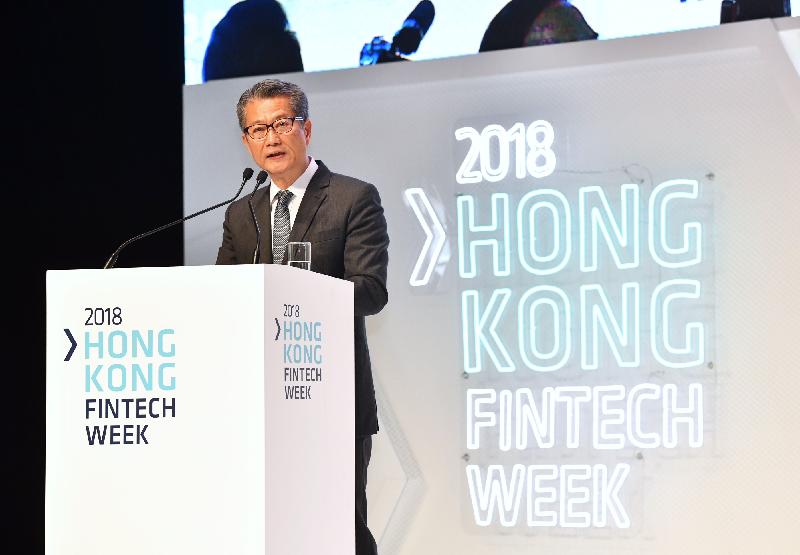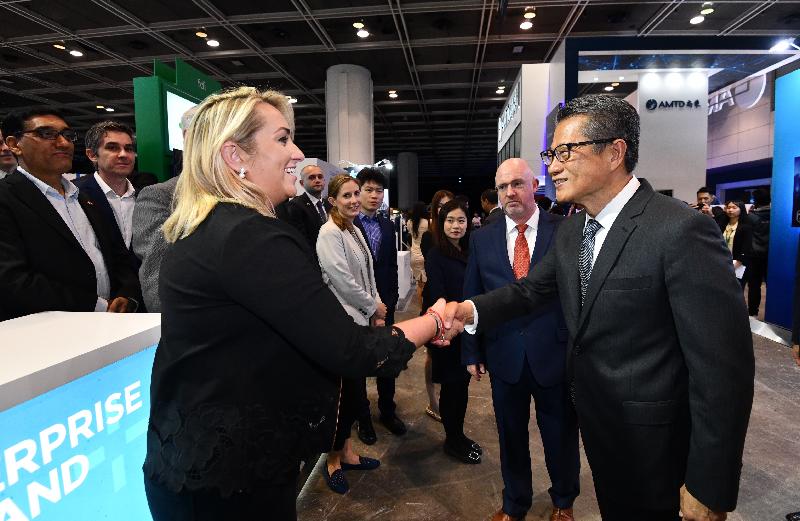Following is a question by the Hon Chan Chi-chuen and a written reply by the Secretary for Security, Mr John Lee, in the Legislative Council today (October 31):
Question:
It has been reported that a Mainland company is suspected of pirating a foreign company's software in developing its software and it made exaggerated statements in promoting the software. The person-in-charge of that company was granted approval in 2012 for coming to Hong Kong for settlement under the Quality Migrant Admission Scheme (the Scheme). Besides, the media have uncovered a number of exaggerated and misrepresented statements in the curriculum vitae of that person uploaded onto the company's website. Quite a number of members of the public doubt whether the Immigration Department (ImmD) stringently scrutinised the information submitted by the applicants when it processed applications under the Scheme in the past. In this connection, will the Government inform this Council:
(1) whether ImmD contacted the relevant organisations or institutions in the past five years for the purpose of verifying the information submitted by the applicants under the Scheme; if so, of the number of applications refused by ImmD in each of the past five years on the grounds that the applicants had submitted false or misrepresented information;
(2) whether ImmD will conduct sampling reviews on the authenticity of the information submitted, by persons who have been granted approval for coming to Hong Kong for settlement, in their applications under the Scheme; if so, of the details; if not, the reasons for that; and
(3) whether, under the existing mechanism, ImmD may revoke the resident status of those persons found to have poor conduct or bad reputation after they have been granted approval for coming to Hong Kong for settlement under the Scheme, so as to ensure that Hong Kong's reputation will not be tarnished; if not, of the reasons for that?
Reply:
President,
The reply to Hon Chan's question is as follows:
The Immigration Department (ImmD) has always assessed applications for visas or entry permits for employment according to the laws and established policies. In processing each application, ImmD will examine whether the applicant meets the specific eligibility criteria under the relevant admission scheme or arrangement and normal immigration requirements, and will take into account the individual circumstances of each application, so as to ensure that only applicants who are in compliance with immigration policies will be admitted into Hong Kong.
The Quality Migrant Admission Scheme (QMAS) aims to attract highly skilled or talented persons to settle in Hong Kong, which is a quota-based admission scheme. During each selection exercise, applicants who satisfy both the prerequisites and the passing mark (under the General Point Test) or the one point-scoring factor (under the Achievement-based Points Test) will be assessed further by the Advisory Committee on Admission of Quality Migrants and Professionals (the Advisory Committee). The Advisory Committee considers the socio-economic needs of Hong Kong, the sectoral mix of candidates and other relevant factors, and recommends to ImmD how best to allocate available quota in each selection exercise.
(1) and (2) In processing each application, ImmD has adopted stringent standard in verifying qualification proof submitted by applicants. ImmD requires QMAS applicants to submit relevant proof of educational qualifications, working experience and professional qualifications, etc. to establish his/her meeting of the prerequisites and eligibility for relevant scores under the respective point-scoring factors. For proof of academic qualifications, ImmD will request the applicants to apply to relevant authorised institutions (such as respective education department or authorities, the Hong Kong Council for Accreditation of Academic and Vocational Qualifications, or the relevant educational institutions) for verification of his/ her academic qualifications, and send the verification results to ImmD directly for examination. As for the documentary proof of other professional qualifications, ImmD may request the applicants to submit the documentary proof of professional qualifications validated by relevant notaries public, so as to determine the authenticity of the documents. Applicants who are allotted a quota in the selection exercise are required to present originals of all documents submitted during the application (including supporting documents to demonstrate relevant work experience) to ImmD for verification. In addition, if ImmD receives any report on furnishing false information or making false representation, ImmD will conduct detailed investigation into the doubtful cases.
Regarding the QMAS application, from 2014 to September 2018, ImmD has investigated 12 QMAS applications suspected to have furnished false information or made false representation. Among these 12 doubtful cases, all applications were either withdrawn by the applicants or not processed further due to insufficient information. Nine cases are still under criminal investigation.
(3) It is an offence for any persons to furnish false information or make false representation to ImmD in their applications for visas or entry permits. Apart from rejecting such applications, ImmD will also initiate criminal investigations into the cases concerned. Upon conviction, offenders are liable to a maximum fine of $150,000 and imprisonment for 14 years. In addition, it is also an offence to make, possess or use false instruments. Upon conviction, offenders are liable to a maximum penalty of 14 years' imprisonment. Should any person be found to have obtained his visa or entry permit to Hong Kong by illegal means, the visa or entry permit so obtained will become null and void according to the law, and the person concerned will be subject to removal back to his place of origin. Even if the person has ordinarily resided in Hong Kong for a continuous period of seven years or more and obtained the right of abode in Hong Kong, his right of abode in Hong Kong will be declared invalid according to the law, and he will be subject to removal back to his place of origin.


